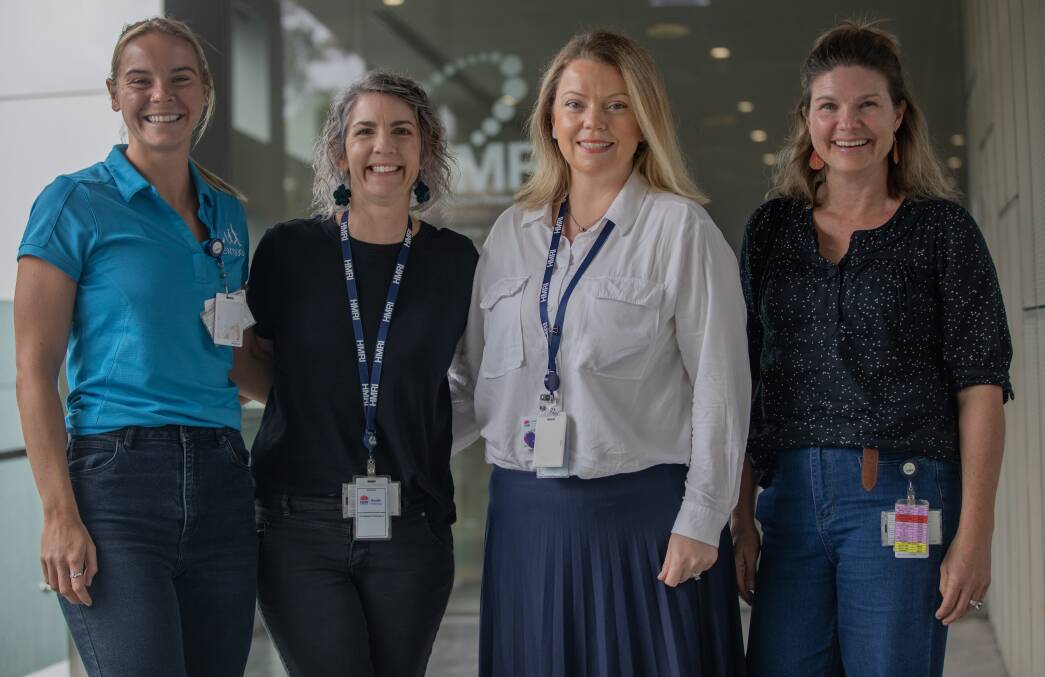
Hunter Medical Research Institute is part of a world first study aiming to predict pre-term birth and put interventions in place to help pregnancies reach full term.
Pre-term birth, when a baby is born before 37 weeks, affects about one in 10 births, but there isn't a reliable test to predict which pregnancy it will affect.
The Prevent Prem study study being conducted by the University of Newcastle's Professor Craig Pennell is trying to identify preterm births so treatments can be put in place to reduce the risk of early labour.
"It's a huge problem emotionally, physically, the economic impact is enormous," HMRI research midwife Bridget McCleery said.
"The financial toll of having to leave work early, some women have small families and have to travel from far away to come to the John Hunter because we are a large catchment area.
"The economic cost of just staying down here for their families can be huge either after they go to the NICU, which is where the babies go once they're born, or they're if still pregnant and they need to be in-patients.
"The impact on the health industry is huge as well, having babies born prematurely that are intubated in the NICU is a huge cost.
"But there's also a huge emotional toll on women and their families. It must be completely frightening having your baby coming early when you know that you're supposed to get to 37 weeks at least.
"Some of them don't survive and some of them will go on to have long-term health impacts from being born early."
The study includes a high risk population and a random population submitting to a blood test to identify who may need treatment in the first trimester of pregnancy.
"If we know someone is at risk, we actually can give them progesterone suppositories early in their pregnancy which can act immediately on the cervix and and try to keep that cervix from opening early and softening," Mc MCleery said.
"We also would introduce a little bit more monitoring in terms of ultrasounds, watching the length of the cervix."
More than 330 people have participated in the study since February, with an aim of 4500 participants all up.
Speaking ahead of International Midwives Day on May 5, Ms McCleery said it was rewarding research to be a part of.
"It's something that I am really proud to be part of because I would love it if we would be able to lower those risk factors of preterm birth and prevent all the adverse outcomes that come along with that," she said.
"I think it's so important to be able to work in an evidence-informed world and hopefully make big differences to the future, so it's very exciting."







